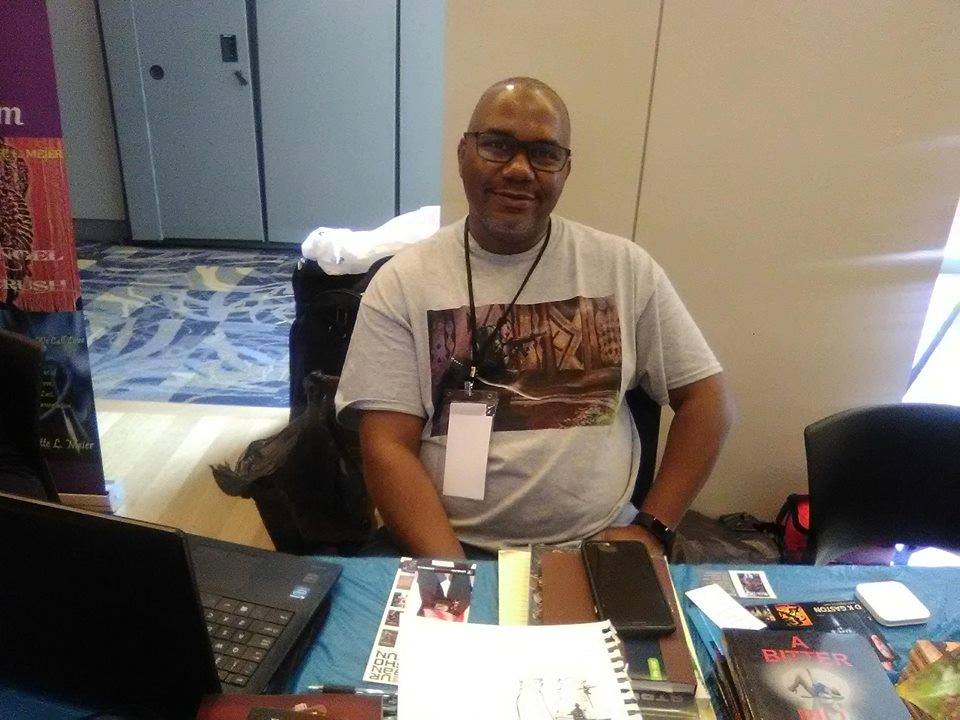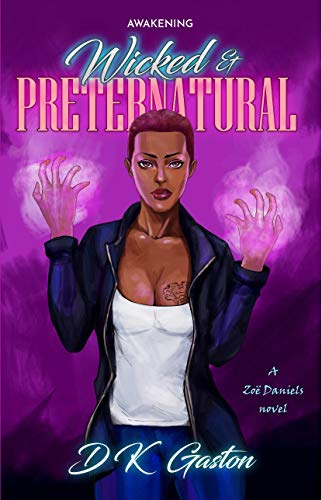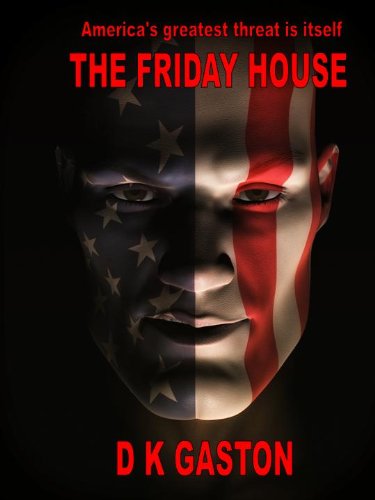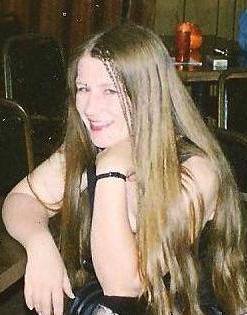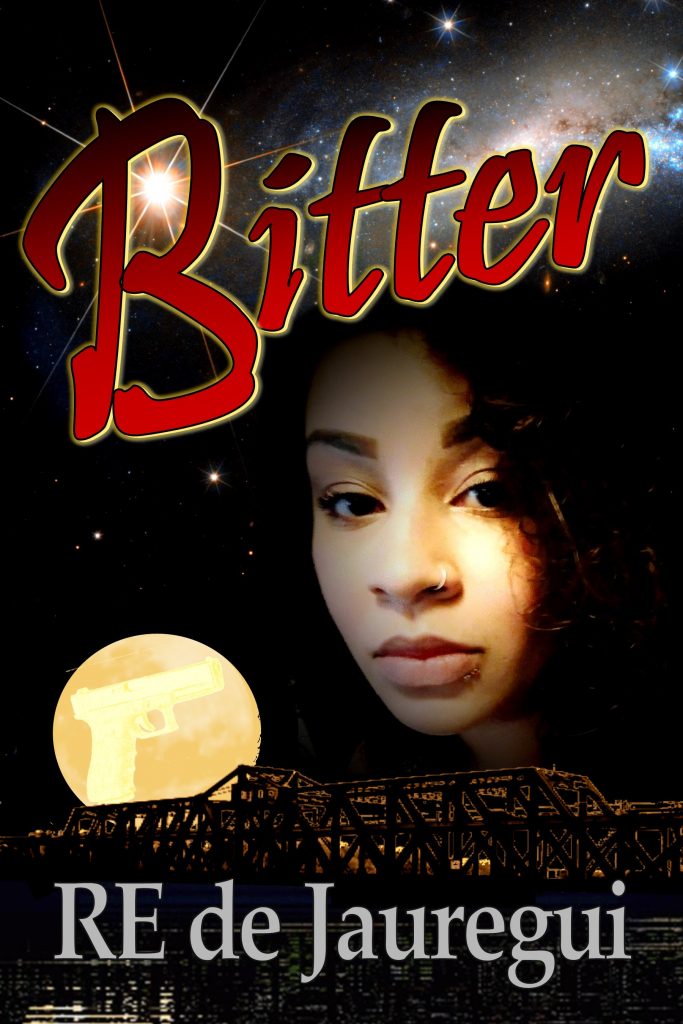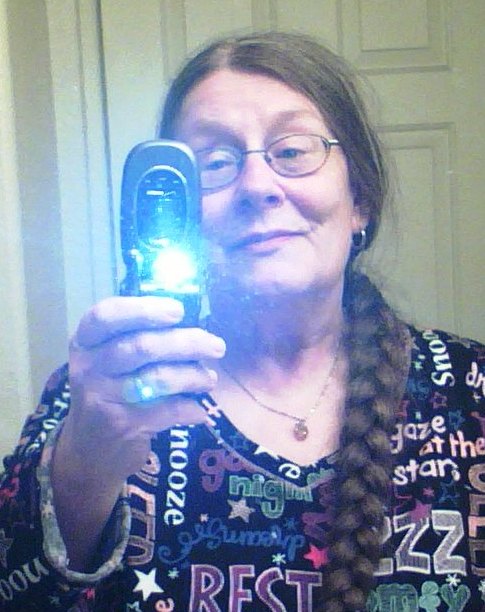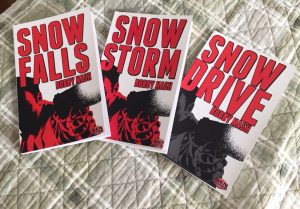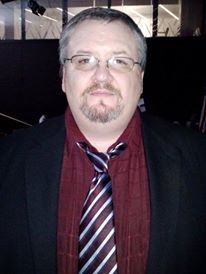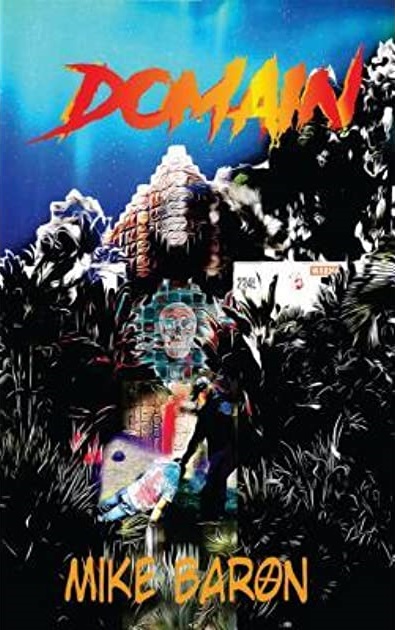
About halfway into DOMAIN by Mike Baron, I was wondering if maybe Mr. Baron hadn’t gotten two versions of the same novel mashed-up together and mistakenly published them as one. Give me a minute and I’ll explain.
In the first version, we have Kendall Coffin, a moderately successful comic book artist who due to an unexpected financial windfall is able to purchase an extraordinarily lavish and baroque Los Angeles mansion that looks like a cross between 1930’s Art Deco and a Mayan temple. It’s a mansion that was built by an eccentric architect and owned by an even more eccentric Hollywood producer. As in any good haunted house story, the mansion is rumored to have been the location of depraved sexual acts, rampant drug and alcohol abuse, Satanic rituals, pedophilia, necrophilia, and Great Cthulhu himself only knows what all else went on in that joint. That’s why Kendall is able to buy it cheap.
He settles down to his new life, meeting new neighbors, engages in romantic and business relationships and even gets himself a dog. But as he explores his new house and finds new rooms full of Hollywood memorabilia and remnants of the former owner’s depravities it begins working on his conscious and subconscious mind. Are there spirits of the dead infesting the house and subtly influencing Kendall? Maybe even to the point where he is committing murder without being aware of it?
In the second version Kendall Coffin goes to work for a thinly disguised Disney knock-off as a storyboarder. The studio is moving in a new direction and their latest production is an erotic thriller. While the job pays extraordinarily well, the subject matter is distasteful. And it’s in this version that Coffin wryly and cynically observes and muses on pop culture, comic book culture, Hollywood, TV, The Cult of Celebrity that has infected this country, video gaming, religion, the pros and cons of drug use, mortality and The Meaning of Life.
Don’t get me wrong, the two versions co-exist side-by-side and at times I actually found myself wanting to see more of the version with Kendall navigating his way through Hollyweird, wondering if this is truly the life he wants. There are chapters that are nothing more than Kendall going through his day and rather than being boring they do indeed enhance the story, providing characterization and doing something that a lot of horror stories don’t do; remind us that even though horrible things are happening around us, life does indeed go on. We still have to feed the dog, put out the garbage and make a living. We still have to deal with loss and we still want to find love and have sex.
This is the fourth novel of Baron’s I’ve read and as always, I enjoy his freewheeling, don’t-give-a-damn prose. Baron writes as if he’s out to entertain himself first and foremost and it’s a tactic I wish more writers would adapt because if the writer is enjoying himself then it can’t help but translate into an enjoyable reading experience. I also like how he’s not afraid to use brand names, the names of real and made-up rock groups, movie and TV actors, song titles, movie titles. There’s a name for this, y’know. It’s called “The Fleming Effect” named after Ian Fleming, the creator James Bond. A good case could be made for him inventing Product Placement since he name dropped left and right in his James Bond novels. I like it myself. It gives a novel an added layer when I’m reading about characters eating in the same restaurants I do, reading the same books and watching the same TV shows I do.
If you’ve read Mike Baron’s other books then you know what you’re getting and I don’t have to twist your arm. If you haven’t, then I’d recommend you sample “Helmet Head” (which reads like the best John Carpenter movie John Carpenter never made) and “Skorpio” before diving into DOMAIN. But no matter which of his books you decide to start with, you’ll be entertained, trust me. Mike Baron writes in a highly cinematic style that puts me in mind of the best of 1980s grindhouse movies. True, his books have a lot of build-up but it’s there for a reason and the payoff is always worth the wait. Highly Recommended.
{This review was previously posted by the author on another site.)

